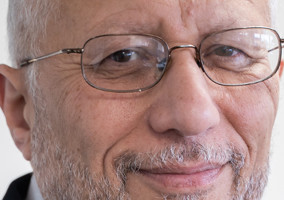Not many people could have foreseen the Covid-19 pandemic and the impact that it’s had globally. It’s caused a huge loss of life, economic devastation and terrible disruption to us all, rich and poor. Many charities have suffered severely. Income streams have been cut, many volunteers have been unable to work and so many front line care services have struggled under new social distancing measures. These are trying times for charities.
Even outside of our sector, businesses are struggling. Day after day, businesses are folding up, unable to adapt to life in lockdown and the financial pressure it has put on them. It’s sad but true that, in times like these, it’s survival of the fittest. Those that have been able to react at speed and adapt to life under lockdown have fared better than those whose response has been slow. In our global and disruptive society, leaders need to be able to prepare for the unexpected. This is more than a generic crisis preparedness plan. In my mind, the key attributes that leaders need to demonstrate today are adaptation and resilience.
Making our charity more agile
I joined Human Appeal in April 2019 and, during my sixteen months here, I have been overseeing extensive changes in order to make our organisation more agile, responsive and accountable. It’s no secret that I joined Human Appeal during challenging times in our charity’s history.
In part, Human Appeal was a victim of its own success. It had grown at such a pace that its processes and structure were struggling to catch up with its sudden size. External auditors had been called in, and the charity had voluntarily referred itself to the Charity Commission to investigate the departure of the previous CEO and the events surrounding this. The trustees and I instigated a fundamental culture of change to enable Human Appeal to regain its confidence and thrive. In just over a year, Human Appeal has been transformed and the changes that were made have enabled us to weather the storm of the pandemic well.
This transformation started with senior management and governance. Interim management had done a good job of steadying the ship and we have been able to build on their efforts by recruiting a host of new seasoned and skilled senior managers while some internal staff were promoted based upon their performance and ability to lead. Our board of trustees was strengthened in number and in expertise, with streamlined and well-defined terms. This has enhanced our governance, control and assurance systems. This strong and stable leadership has strengthened internal confidence, and staff once again felt empowered.
A series of new policies were rolled out to improve communications and ensure greater visibility of progress and risks. Our weekly board of directors meeting now begins with a review of all risks captured on our risk management system RHIZA. We’ve also rolled out new safeguarding policies and are currently conducting an organisation-wide process mapping exercise to standardise and streamline all processes.
A three-year strategy is not fit for purpose in a fast-changing world
Our strategy has evolved too. A three-year strategy is no longer fit for purpose in a world in which change comes fast. Our strategy is now evolving and agile. It can react to the unexpected, as we demonstrated during the pandemic. Our board of directors started to discuss the global impact of Covid-19 in early February so that departments from HR to programmes to fundraising could think ahead and embark on contingency planning.
A good example of this was Ramadan in lockdown. Community fundraising historically leads the way during Ramadan, but during lockdown, we had to move fast to adapt plans and refocus efforts digitally and through strategic partnerships. The results? We exceeded our targets and strengthened our relationships with key donors.
The last fundamental change relates to accountability. When I began my tenure I assured our donors and supporters that Human Appeal’s middle name would be transparency and I’m proud to say that we have lived it. We launched a trust campaign to give full visibility of how our income is spent and explain the value of our admin fee. This has received positive feedback and we’re already planning a next phase of this campaign.
Reflecting back on the past year, it’s safe to say that, out of our past crisis, we’ve become stronger and more resilient. New governance, policies and systems means we will ensure past mistakes cannot be repeated. The transformative changes that have been made have enabled us to weather the pandemic relatively well. We have learnt from our mistakes, regained trust with our supporters and rebuilt our organisation in a model designed to future-proof.
I don’t know what natural disaster or pandemic is around the corner, but I hope that Human Appeal is fit to survive it. From what I have seen in just over a year in charge so far, I am increasingly confident that we will.
Dr Mohamed Ashmawey joined Human Appeal as chief executive in April 2019
In these extraordinary times, we are putting together a week of digital content aimed to connect and inspire faith-based organisations of all shapes, sizes and denominations. We will be focusing predominantly on the challenges facing faith-based organisations, and the role of faith, in times of crisis. Find out more here.
Related articles











